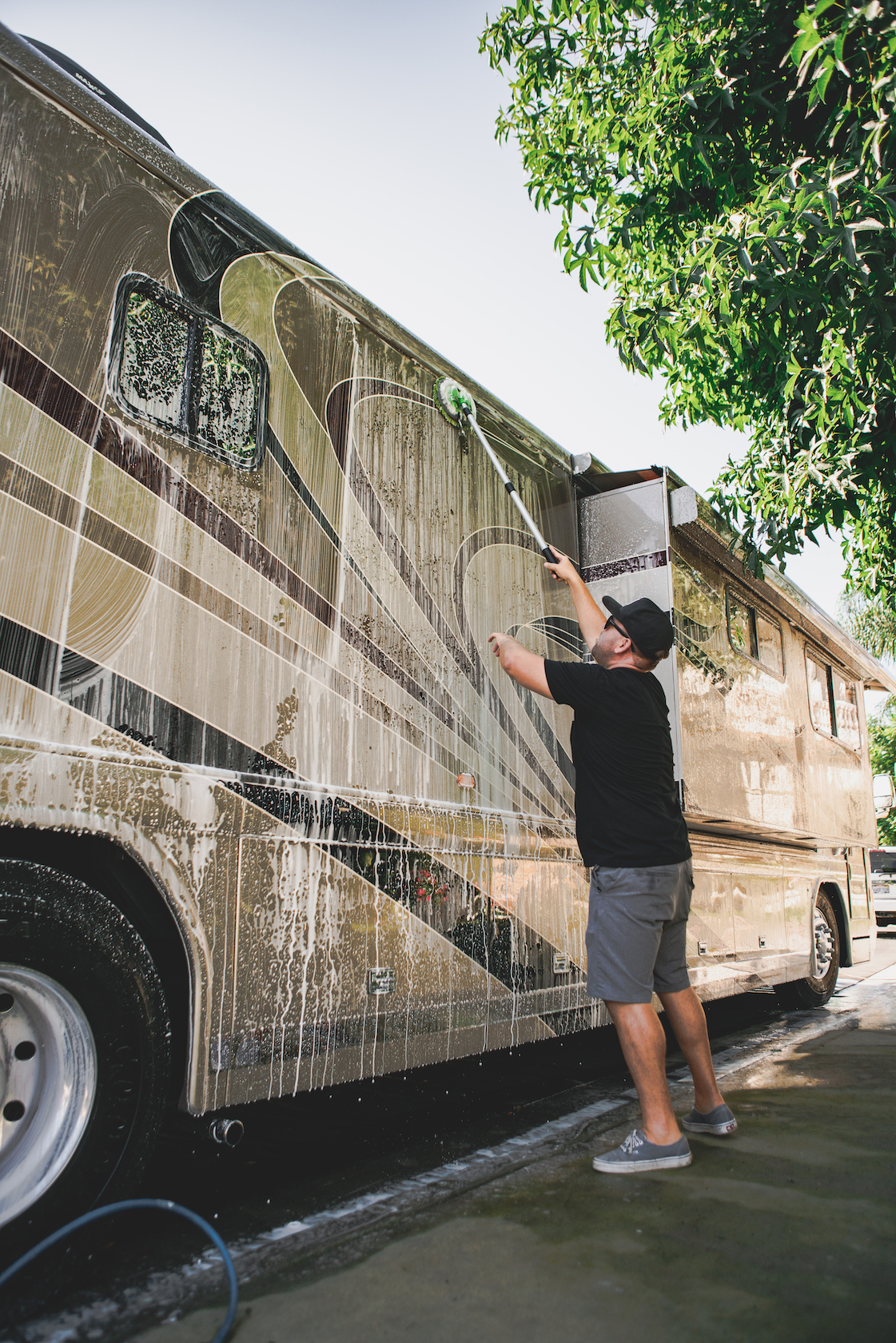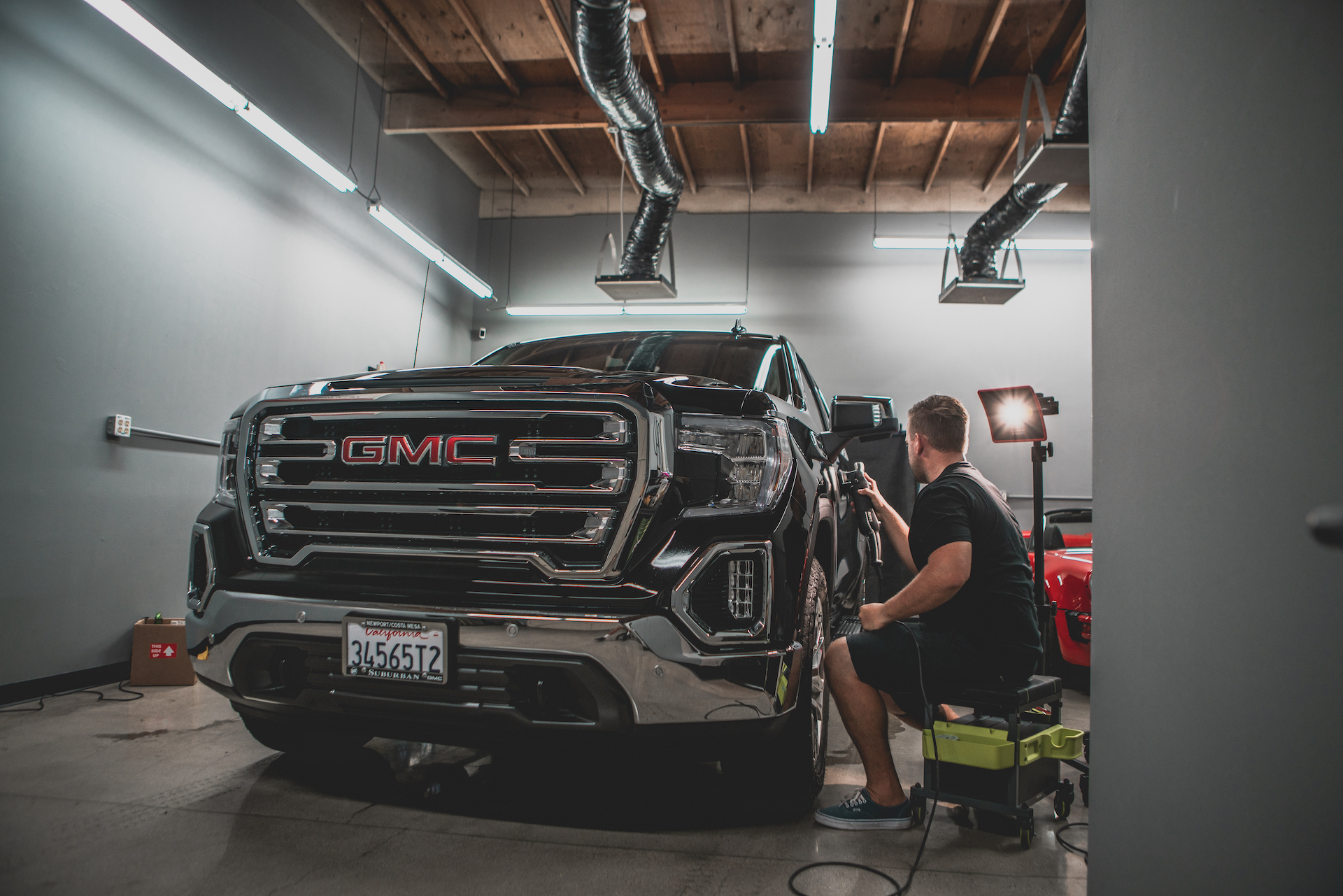To Pressure Wash or Not to Pressure Wash: Navigating the Pros and Cons for Your Detailing Business
Aug 14, 2023
In the realm of automotive detailing, achieving that showroom-worthy finish is a delicate art that requires the right tools, techniques, and expertise. Among the arsenal of tools at a detailer's disposal, pressure washers stand out as powerful contenders. However, like any tool, they come with their own set of advantages and considerations. In this blog post, we'll explore the nuanced landscape of pressure washers in detailing businesses, delving into the top five reasons you might not need one.
1. Initial Investment and Financial Implications: Starting a detailing business involves a meticulous financial plan. Aspiring detailers often find themselves carefully weighing the costs of equipment, supplies, marketing, and more. When it comes to pressure washers, the initial investment can be a significant financial burden, especially for those just venturing into the industry.
High-quality pressure washers, equipped with the necessary features and power, can be pricier upfront. This upfront expense might strain budgets, especially for startups that need to allocate funds across various areas of the business. Detailers must carefully evaluate whether the immediate benefits of a pressure washer justify the initial financial strain or if there are alternative methods that provide satisfactory results without the hefty upfront cost.

2. Maintenance and Repair Costs: While pressure washers offer efficient and thorough cleaning, they also require regular maintenance to ensure they perform optimally over the long term. This maintenance includes tasks like cleaning filters, inspecting hoses and connections, and addressing any wear and tear. Additionally, pressure washers are not immune to breakdowns or malfunctions, which can lead to unexpected repair costs.
Detailers need to factor in both the time and money required for maintenance and potential repairs when considering the inclusion of a pressure washer in their toolkit. The ongoing expenses associated with maintenance and repairs can impact the bottom line and must be weighed against the benefits the pressure washer brings to the table.
3. Skill and Training Requirements: Pressure washers may seem straightforward to use, but they require a level of skill and training to operate effectively, especially in a detailing context. In inexperienced hands, the powerful stream of water can inadvertently damage vehicle surfaces, leading to costly mistakes and unsatisfied clients. Achieving the delicate balance between efficient cleaning and avoiding damage necessitates understanding the right pressure settings, nozzle choices, and distance from the surface.
Detailers must invest time in learning the ins and outs of pressure washer operation to ensure they deliver consistent, high-quality results. This learning curve can be steep for those new to the equipment, potentially leading to subpar outcomes until proficiency is achieved. The need for training adds another layer of consideration when evaluating whether a pressure washer is a valuable addition to the detailing business.

4. Water Usage and Environmental Concerns: While pressure washers are undeniably effective at cleaning, they also have a reputation for being water hogs. The forceful stream of water requires a significant amount of water to operate, which can be a concern in areas with water scarcity or restrictions. Additionally, the runoff water may carry contaminants, chemicals, or debris into the environment, potentially posing environmental risks.
Detailers operating in regions with water scarcity must weigh the benefits of using a pressure washer against the ethical and ecological concerns associated with excessive water consumption. Striking a balance between efficient cleaning and environmental responsibility becomes crucial in these situations.
5. Space Constraints and Specialized Services: Detailing businesses come in various sizes and niches. Some businesses may have limited physical space for storing and using a pressure washer. Additionally, not all detailing tasks require the use of a pressure washer. For instance, businesses specializing in interior detailing may find the equipment unnecessary for their core services.
Before investing in a pressure washer, detailers should assess their business model, space availability, and the types of services they offer. If a pressure washer doesn't align with the core services or logistical constraints of the business, the investment might not provide a sufficient return on investment.
Conclusion: Making the Right Call for Your Detailing Business Pressure washers undoubtedly offer a plethora of advantages for automotive detailing businesses, ranging from efficient cleaning and stain removal to the ability to convey a professional image. However, the decision to incorporate one into your toolkit should be a well-informed one, taking into account the unique circumstances of your business.
The considerations discussed – initial investment, maintenance costs, skill requirements, environmental concerns, and alignment with specialized services – form a framework for evaluating whether a pressure washer is a beneficial addition. Detailers must weigh the potential benefits against the challenges and determine whether the investment aligns with their long-term goals, financial capacity, and commitment to sustainable practices.
Ultimately, the choice is nuanced and personal. Each detailing business is a unique entity, and what works for one may not work for another. By carefully assessing the pros and cons, detailers can make an informed decision that not only enhances their operations but also contributes to the overall success and sustainability of their business.
** CHECK OUT MORE TIPS BY JIMBO ON OUR YOUTUBE CHANNEL! **


